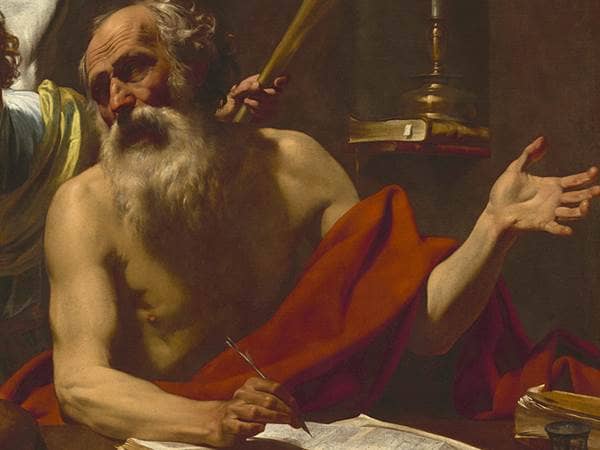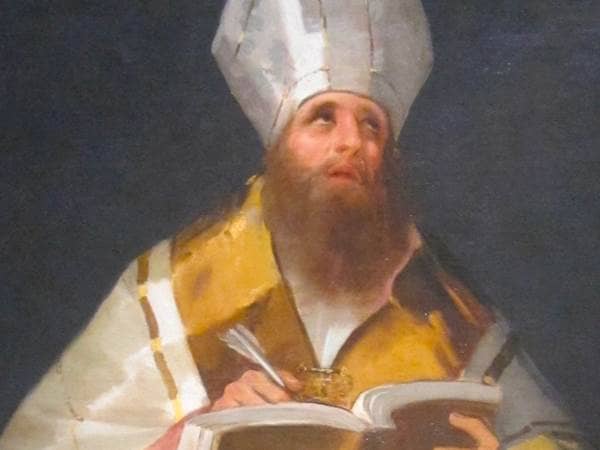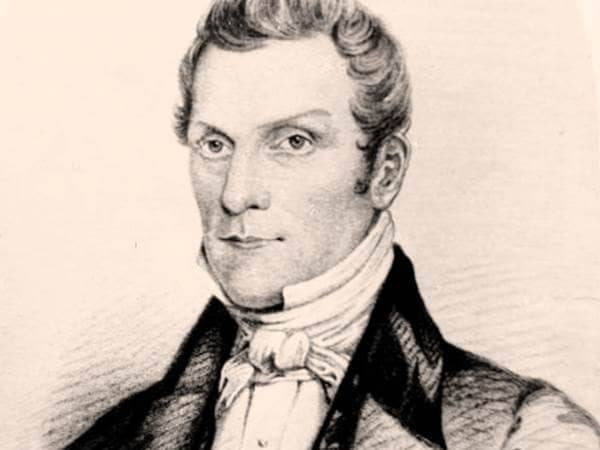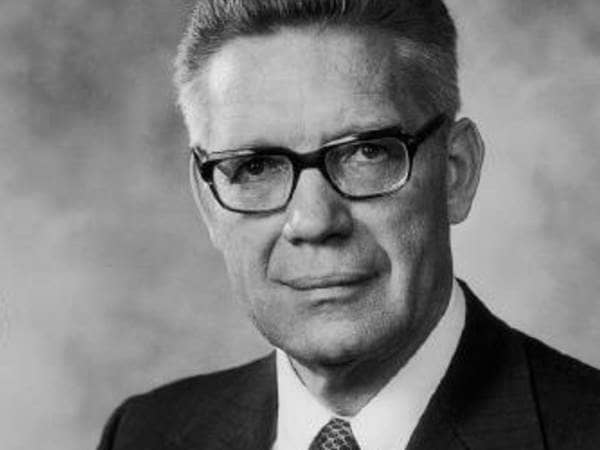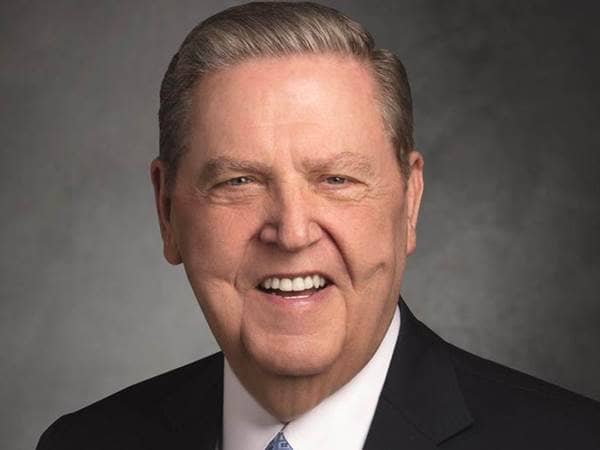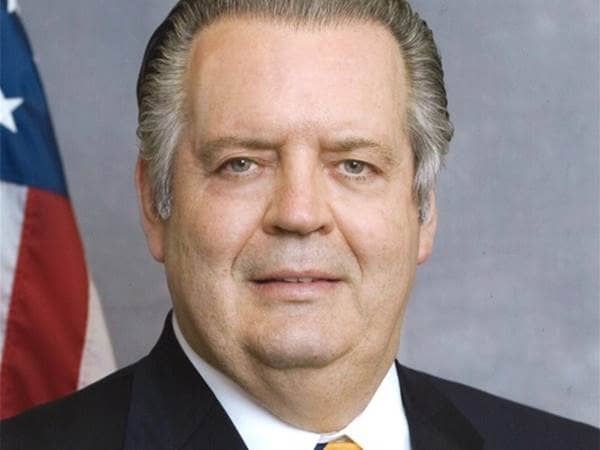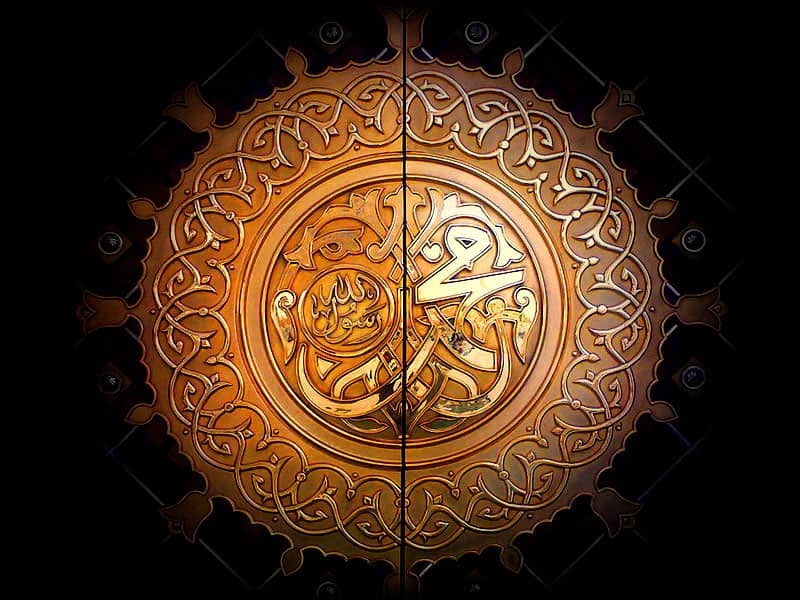
- Lived: 570 CE - June 8, 632 CE (Early Medieval)
- Nationality: Arabian
- Known for: Founder of Islam
Muhammad is known as rasul Allah, or God's Messenger to the Arabs, and to all of humanity. Most of what we know about him comes from the Quran, and biographies written in the century after his death. Muhammad's father died before he was born, and his mother died when he was six years old, leaving him an orphan. He went to live with his paternal grandfather, who sent him to live with a nomadic tribe. This was customary at the time for boys born in the towns of the Arabian peninsula. Later, Muhammad began accompanying his uncle, Abu Talib, on trading expeditions to Syria. On one of these trips, Muhammad met a wealthy widow named Khadija. Khadija was impressed by his honesty, and hired him to manage her caravan business. Eventually she proposed marriage. The couple was married for twenty-four years and had at least seven children together, four daughters who survived to adulthood, and at least three sons who died in infancy. (After Khadija's death, Muhammad married several women.)
At around 40, Muhammad had a vision that shook him deeply, and began preaching to the people of Mecca in 613. His earliest messages focused on the oneness (tawhid) of Allah, the punishments that await the greedy and the proud on Judgment Day, and on exhorting people to show goodwill toward one another. He put special emphasis on the care of the poor, especially orphans and widows. Muhammad critiqued the culture of competition and the high value placed on money and material goods, calling for submission to the will of the one true God, and he gathered followers poor and wealthy seeking something more fulfilling than the materialism offered. Mecca, however, was a center for trade and the most important destination in the peninsula for the annual pilgrimage that celebrated the pantheon of gods, a festival that netted for the Meccans their annual gross income. So the merchant society of Mecca was not particularly receptive to Muhammad's critique of materialism and his calls for social reform and monotheism. Tribal leaders attempted to compromise, allowing that Muhammad's God might be the most powerful, and offering to share the wealth of the annual pilgrimage. When he rejected these gestures, the Meccans began persecuting him and his followers.
In 622, Muhammad and his followers accepted an invitation to nearby Yathrib, an event remembered as the Hijra, or emigration. This event became year one of the Islamic calendar. Muhammad built the first mosque in his new home, and Yathrib became known as the city of the prophet, madinat al-nabi, or simply, Medina, one of Islam's three holiest cities (Mecca and Jerusalem being the other two). Muhammad's followers grew. Until this time, Muhammad had taught that God's revelation to the Arabs was in a common stream with Jewish and Christian revelations, not a separate religion but the culmination of them. Upon the rejection of this view by Jewish leaders, Muhammad founded Islam as a separate religion. The Meccans and Muslims fought a major battle, and when the Muslims won, many saw this as a sign of God's protection, and converted to Islam. The following year, they suffered heavy losses in a second battle with the Meccans, but in 630, Muhammad took control of Mecca. Many tribes pledged loyalty to him and he gained control of Arabia. Muhammad fell ill and died after a pilgrimage to Mecca in 632.
The Quran emphasizes Muhammad's humanity, portraying him, warts and all, as a mortal man with desires and limitations. Muslims will often say "Peace Be upon Him," or write "pbuh," after hearing or saying his name. (Source: Patheos Religion Library)
At around 40, Muhammad had a vision that shook him deeply, and began preaching to the people of Mecca in 613. His earliest messages focused on the oneness (tawhid) of Allah, the punishments that await the greedy and the proud on Judgment Day, and on exhorting people to show goodwill toward one another. He put special emphasis on the care of the poor, especially orphans and widows. Muhammad critiqued the culture of competition and the high value placed on money and material goods, calling for submission to the will of the one true God, and he gathered followers poor and wealthy seeking something more fulfilling than the materialism offered. Mecca, however, was a center for trade and the most important destination in the peninsula for the annual pilgrimage that celebrated the pantheon of gods, a festival that netted for the Meccans their annual gross income. So the merchant society of Mecca was not particularly receptive to Muhammad's critique of materialism and his calls for social reform and monotheism. Tribal leaders attempted to compromise, allowing that Muhammad's God might be the most powerful, and offering to share the wealth of the annual pilgrimage. When he rejected these gestures, the Meccans began persecuting him and his followers.
In 622, Muhammad and his followers accepted an invitation to nearby Yathrib, an event remembered as the Hijra, or emigration. This event became year one of the Islamic calendar. Muhammad built the first mosque in his new home, and Yathrib became known as the city of the prophet, madinat al-nabi, or simply, Medina, one of Islam's three holiest cities (Mecca and Jerusalem being the other two). Muhammad's followers grew. Until this time, Muhammad had taught that God's revelation to the Arabs was in a common stream with Jewish and Christian revelations, not a separate religion but the culmination of them. Upon the rejection of this view by Jewish leaders, Muhammad founded Islam as a separate religion. The Meccans and Muslims fought a major battle, and when the Muslims won, many saw this as a sign of God's protection, and converted to Islam. The following year, they suffered heavy losses in a second battle with the Meccans, but in 630, Muhammad took control of Mecca. Many tribes pledged loyalty to him and he gained control of Arabia. Muhammad fell ill and died after a pilgrimage to Mecca in 632.
The Quran emphasizes Muhammad's humanity, portraying him, warts and all, as a mortal man with desires and limitations. Muslims will often say "Peace Be upon Him," or write "pbuh," after hearing or saying his name. (Source: Patheos Religion Library)
Back to Search Results
